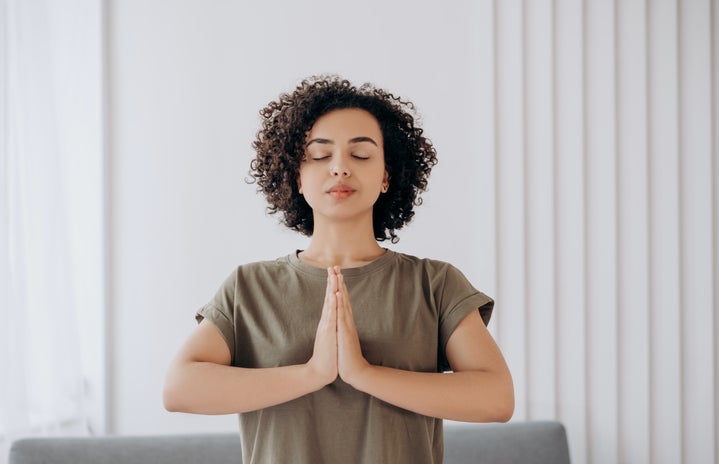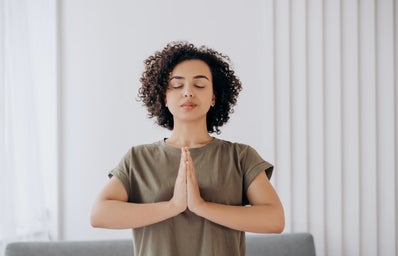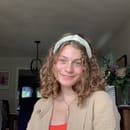This semester I took my First Writing Requirement, ENWR 1510. The class focus was Community Engagement with a more specific topic being The Contemplative Pause. I chose the class without even realizing that there was a subtopic and I was not excited when I found out on the first day what my subtopic was. I remember rolling my eyes and thinking to myself, “What in the world is The Contemplative Pause?”
As the semester comes to a close, I find myself reflecting on those earlier days in the semester. I am so thankful that I decided to stay in the class because the knowledge that I learned has been invaluable and the connections that I made have been extremely worthwhile.
What is the contemplative pause?
“We are able to realize that our first reaction is not always our true reaction.”
The Contemplative Pause is the idea and practice of taking note of your initial reaction to a stimulus, taking a brief pause, and then seeing if you can explore other possible reactions to the stimulus. These stimuluses can be anything, but a few examples are a quote, an image, or an action. For many of us, we are able to realize that our first reaction is not always our true and most accurate reaction. For one of my projects, I used the contemplative pause to explore my reactions to the quote, “It only gets harder from here.” I was able to identify that I found the quote as pessimistic, I saw the quote as applicable to my life, but in the end after taking many breaks I was able to realize that I saw the quote as a challenge. The quote was an invitation for me to pursue life’s hardships with joy and curiosity rather than blind fear of a obscure future.
So What?
Why does any of this matter? The Contemplative Pause has had implications far beyond the classroom in Bryan Hall. I am able to handle situations with a more multi-dimensional approach and I am much better at handling my own emotions in everyday life. The beauty of this class is that it taught me that I can have multiple reactions to the same stimulus that might even contradict each other. These contradictions do not invalidate my reactions, rather they show the unique ability to truly see a situation through several different lenses. If one can bring that ability into life, one can open themselves up to experiences they never would have expected even if they end up still agreeing with their initial reaction after the process. The Contemplative Pause can help one from getting stuck in the same line of thought without ever considering other perspectives.
How to practice the contemplative pause
The Contemplative Pause can be a confusing concept to master especially at first when we are often tied down to our initial reaction and opinion about something.
If you want to practice The Contemplative Pause in your daily life, then I invite you to try this exercise. The next time you are driving or walking around and see a statement or image such as a bumper sticker or flyer that is thought-provoking, I want you to stop. First, identify the way that the stimulus originally makes you feel and explain to yourself why it makes you feel that way. Then, take a few deep breaths and then think about the stimulus again. I want you to try to see it in a new light and attempt to put yourself in someone else’s shoes. If you find yourself opening up to more reactions, then I invite you to keep exploring those. After that, I want you to take a look back at your initial reaction and see if that is your true and solidified reaction or if you see any changes or movement in your reaction.
The great thing about The Contemplative Pause is that it can be practiced and built upon all the time. Anytime you feel yourself provoked by something or experiencing a lot of emotions at once, I invite you to take the time to individually explore those reactions. This exploration can allow yourself to reach a new self-awareness along with increased mindfulness about those around you.


